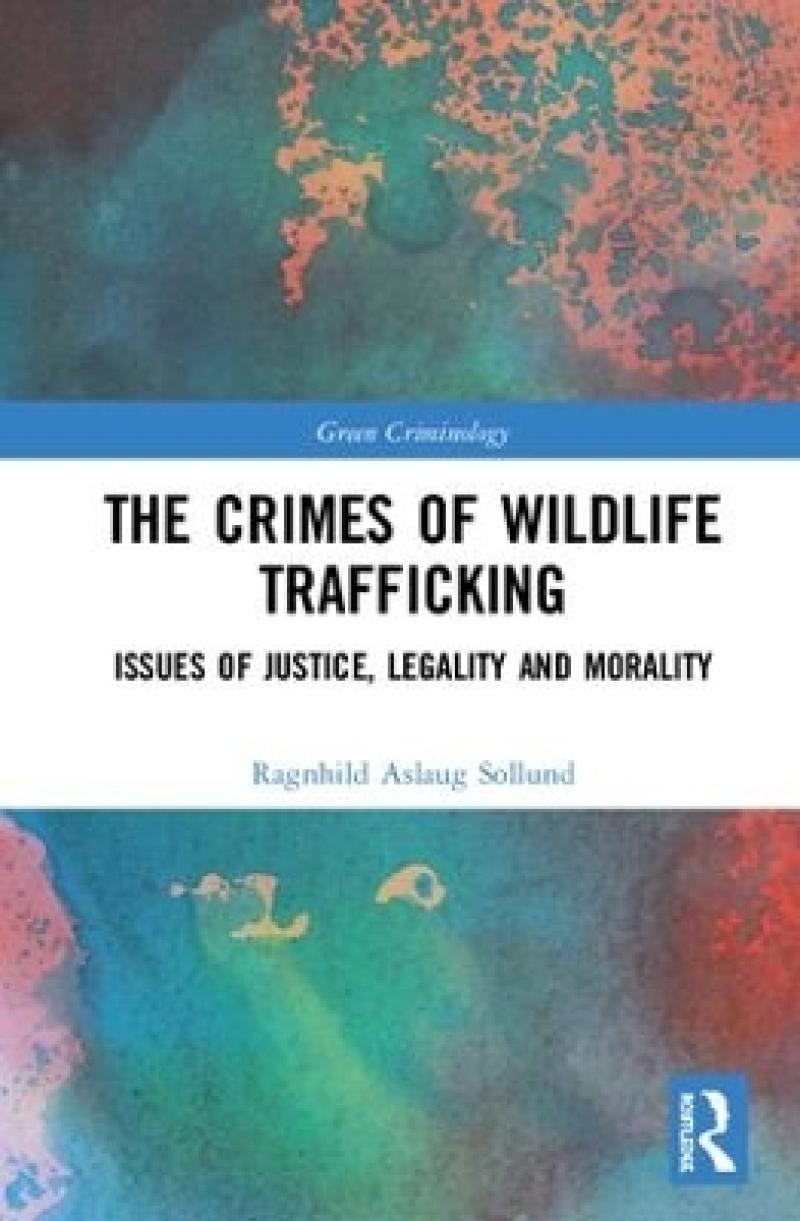<p><b>`This book is destined to be a work of reference for anyone wishing to approach the study of trade and trafficking of wild animal species. Ragnhild Aslaug Sollund, a major figure in green criminology, has written a book that brings to fruition more than a decade of research on environmental crime, culminating in groundbreaking considerations in the field of justice, legality and morality...The revision of the regulation can only be born of academic works of this quality and honesty. Further, it is works like this that lead us—as individuals of the human species—to reconsider our place in the animal order and accept that the change is necessary if we do not want to end up extinguishing ourselves as a consequence of the harm that our actions cause to the planet in the era of Anthropocene.' </b> ̶ <i>Fajardo del Castillo T</i> (2019) Review of <i>The Crimes of Wildlife Trafficking: Issues of Justice, Legality and Morality</i> by Ragnhild Aslaug Sollund<i>. International Journal for Crime, Justice and Social Democracy</i> 8(3): 105-107. DOI: 10.5204/ijcjsd.v8i3.1249 </p><p> <strong>`</strong><strong>I read <i>The Crimes of Wildlife Trafficking</i> with great enthusiasm and learned much from it. It is a worthy addition to our knowledge of the WLT and to nonspeciesist and green criminology in general.'</strong> <i>Piers Bierne, University of Southern Maine, USA. Critical Criminology https://doi.org/10.1007/s10612-019-09487-z</i></p><p>`<strong>The brilliance of The Crimes of Wildlife Trafficking lies in the provocative and stimulating manner in which it raises a host of really difficult moral, theoretical and practical questions.... The book’s strong moral thread, emphasising care and empathy for the animal ‘other’, means that it cannot possibly be read as a neutral, technical exercise of academic evaluation. Whether or not one agrees with its basic propositions, the reader cannot but pause to reflect on the fundamental questions of life, love and respect that it raises. For how we treat animals – whether in a legal framework or not – is essentially a statement about the human condition. The book is ostensibly about the wildlife trade. But it is much more than this, and we are better served because of it</strong>.'</p><p><em>Rob White, Distinguished Professor of Criminology, University of Tasmania, Australia. </em><em>https://clcjbooks.rutgers.edu/books/the-crimes-of-wildlife-trafficking-issues-of-justice-legality-and-morality/</em></p><p><strong>`The book is a sobering testament to the inhumane ramifications of anthropocentrism and speciesism, and a reminder that the time is long overdue to reconsider the human condition and accordingly elevate law and everyday ethics.'</strong></p><p><em>Rimona Afana</em>, <i>State Crime</i> Journal , Vol. 10, No. 2 (2021), pp. 335-338 https://www.jstor.org/stable/pdf/10.13169/statecrime.10.2.0335.pdf</p>
<p><b>`This book is destined to be a work of reference for anyone wishing to approach the study of trade and trafficking of wild animal species. Ragnhild Aslaug Sollund, a major figure in green criminology, has written a book that brings to fruition more than a decade of research on environmental crime, culminating in groundbreaking considerations in the field of justice, legality and morality...The revision of the regulation can only be born of academic works of this quality and honesty. Further, it is works like this that lead us—as individuals of the human species—to reconsider our place in the animal order and accept that the change is necessary if we do not want to end up extinguishing ourselves as a consequence of the harm that our actions cause to the planet in the era of Anthropocene.' </b> ̶ <i>Fajardo del Castillo T</i> (2019) Review of <i>The Crimes of Wildlife Trafficking: Issues of Justice, Legality and Morality</i> by Ragnhild Aslaug Sollund<i>. International Journal for Crime, Justice and Social Democracy</i> 8(3): 105-107. DOI: 10.5204/ijcjsd.v8i3.1249</p><p><strong>`I read <i>The Crimes of Wildlife Trafficking</i> with great enthusiasm and learned much from it. It is a worthy addition to our knowledge of the WLT and to nonspeciesist and green criminology in general'.</strong> <i>Piers Bierne, University of Southern Maine, USA. Critical Criminology https://doi.org/10.1007/s10612-019-09487-z</i></p><p>`<strong>The brilliance of The Crimes of Wildlife Trafficking lies in the provocative and stimulating manner in which it raises a host of really difficult moral, theoretical and practical questions.... The book’s strong moral thread, emphasising care and empathy for the animal ‘other’, means that it cannot possibly be read as a neutral, technical exercise of academic evaluation. Whether or not one agrees with its basic propositions, the reader cannot but pause to reflect on the fundamental questions of life, love and respect that it raises. For how we treat animals – whether in a legal framework or not – is essentially a statement about the human condition. The book is ostensibly about the wildlife trade. But it is much more than this, and we are better served because of it</strong>.'</p><p><em>Rob White, Distinguished Professor of Criminology, University of Tasmania, Australia. </em><em>https://clcjbooks.rutgers.edu/books/the-crimes-of-wildlife-trafficking-issues-of-justice-legality-and-morality/</em></p><p><strong>`The book is a sobering testament to the inhumane ramifications of anthropocentrism and speciesism, and a reminder that the time is long overdue to reconsider the human condition and accordingly elevate law and everyday ethics.'</strong></p><p><em>Rimona Afana</em>, <i>State Crime</i> Journal , Vol. 10, No. 2 (2021), pp. 335-338 https://www.jstor.org/stable/pdf/10.13169/statecrime.10.2.0335.pdf</p>
Produktdetaljer
Biographical note
Ragnhild Aslaug Sollund is Professor of Criminology at the Department of Criminology and Sociology of Law, University of Oslo. Her research is in the field of green criminology, specifically wildlife crimes, and she has published widely on this and related areas.
